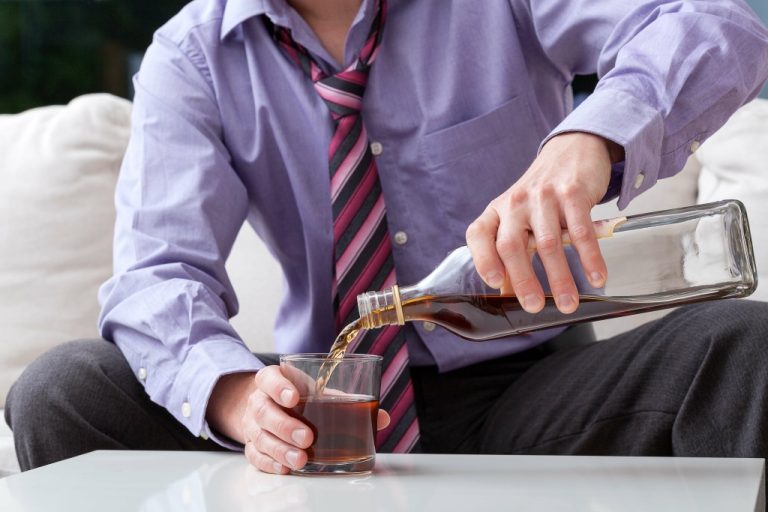Before she decides to attend the party, she could practice mindfulness to decrease stress and become aware of any craving-related thoughts, feelings, and bodily sensations. If she chooses to attend the party, she can use mindfulness to monitor and regulate her experience of craving in response to substance-related cues. However, if she notices she is feeling overwhelmed with craving, she could use mindfulness to disrupt the automatic urge to engage in substance use, and then mindfully respond by taking steps to decrease her risk (eg, leaving the party and calling a supportive friend).

Foster a nonjudgmental, compassionate approach toward ourselves and our experiences. Change relationship to discomfort, learn to recognize challenging emotional and physical experiences, and respond to them in skillful ways. Develop awareness of personal triggers and habitual reactions and learn ways to create a pause in this seemingly automatic process. Many addicts come into recovery with a history of relationships that they have damaged or that have damaged them. Meditation makes it easier for them to forgive the past and develop healthy relationships.
Current state of the field: a review of clinical outcomes of mindfulness-based treatments for addiction
Various meta-analyses have suggested that MBIs show clinical efficacy in the treatment of addictive disorders. MBIs might also reduce addictive behavior by strengthening facets of dispositional/trait mindfulness. In a RCT of MBRP among a heterogenous sample of individuals with various substance use disorders, increases in dispositional mindfulness facets like acceptance, awareness, and nonjudgment significantly mediated the effect of MBRP on decreasing craving following treatment [39].
- With the convergence of a pandemic and an addiction epidemic, those attempting to recover from substance use disorders (SUDS) are more vulnerable to relapse than ever before.
- The meditative mind neutrally observes the coming and going of urges and cravings in a very unnemotional and detached way.
- Navigating through withdrawal can be challenging, and it’s pretty normal for addicts to wrestle with feelings of guilt or embarrassment over their addiction.
- It puts you face to face with all that is disharmonious in your life (especially addiction), and brings everything back into harmony.
- For recovering addicts who are used to partying and having a wild time, sobriety may seem a bit dull.
Yet, work now needs to be done to understand the feasibility, acceptability, and impact of delivering MBIs in addiction treatment settings. By melting away a lifetime of anger, depression, and anxiety, meditation effectively raises your maximum stress threshold, leaving you immune to all addictions. Meditation can also help you deal with protracted withdrawal, which involves symptoms like anxiety, difficulty making decisions and strong drug cravings that last for several months after drug use is stopped. SAMHSA recommends that people find ways to exercise their minds and bodies to prevent themselves from relapsing during the protracted withdrawal phase. All meditation involves being mindful (or present in the moment), but mindfulness meditation emphasizes this.
Mindfulness
Furthermore, MBIs were moderately to largely effective in the treatment of binge eating [31] [32]. Further research in behavioral addictions has been limited so far to the investigation of trait mindfulness [33] and case-reports [34]. Consider the case of a man in partial remission from alcohol use disorder who has recently stopped drinking. After successfully abstaining from alcohol for over 2 months after realizing the negative impact his drinking had on his family and work, he attends a party with old friends, where he is overcome by craving and has a drinking lapse. He could interpret this lapse as the beginning of a downward spiral into his alcohol use habits, with attendant feelings of shame and hopelessness.
The most common methodological limitations were failure to interview collateral informants regarding study participants’ substance use behaviors at posttreatment and follow-up and to employ posttreatment and follow-up interviewers who were blind to participants’ treatment assignments. Fewer than half of the RCTs employed objective verification of participants’ self-reported substance use, such as urinanalysis. As well as strengthening your mind-body connection, meditation is also a great way to maintain a healthy lifestyle. During withdrawal, people often feel like they’ve lost control of their bodies because of physical symptoms. Meditating can recenter your connection with your physical self, which may increase your sense of control and ease discomfort.
Mindfulness in Treatment Approaches for Addiction — Underlying Mechanisms and Future Directions
Moreover, these changes were greater in participants that received MBI [96]. Maynard et al. [25] examined the efficacy of MBIs in the treatment of gambling disorder and included seven studies in their meta-analysis. Moderate to large effect sizes of the interventions on clinical addiction meditation outcome measures indicate MBIs to be effective for gambling disorder patients. Although MBIs are generally considered effective and safe in the treatment of behavioral addictions, only a small number of clinical trials have investigated them in this context [26].
People often use essential oils, such as sage and frankincense, to heighten the experience. This article on Epainassist.com has been reviewed by a medical professional, as well as checked for facts, to assure the readers the best possible accuracy. In fact, meditation is a great way to see how something resonates for you, including the practice of meditation itself. It encourages you to observe yourself without judgment and you can use the practice in order to explore whether or not it works for you. You can stop or continue your practice while you are checking in with yourself now and then.
#2 — Meditation Elicits The Same Brainwaves That Doctors Use To Treat Addiction
According to writer and editor Kristina Ackerman of Americanaddictioncenters.org, relapse is exceptionally dangerous for substance abusers who have abstained from drug use for extended periods due to the loss of tolerance for the drug of abuse. She states, «substance abusers will often attempt to consume the same amount they were accustomed to consuming during the height of their abuse which could result in overdose and even death.» This is indeed a challenge, as MBIs with demonstrated efficacy in Stage II trials may fail to show effectiveness in Stage III and IV trials when delivered by community clinicians.


